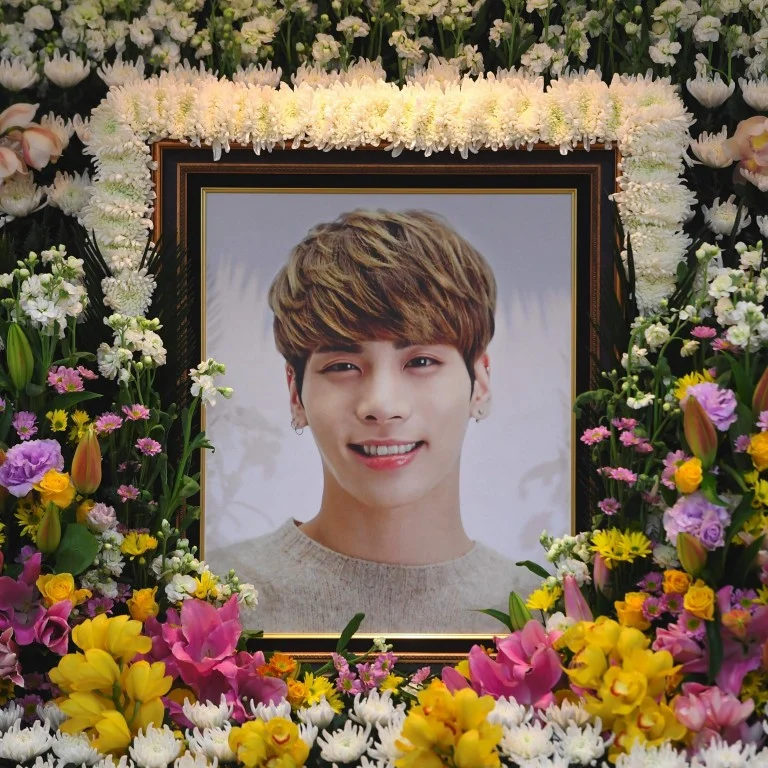A Company’s Battle With Cultural Stigma

South Korea dismisses the idea of mental health which carries over to the work ethics of Korean companies. However, international fans, myself included, are more understanding on the heavy topic. With the growing popularity of K-pop, company tragedies for example, are now affecting how Korean entertainment companies combat mental health.
South Korea has one of many reputations both good and bad. However, this article focuses on the bad reputation of South Korea for their lack of compassion for those suffering through mental health. Any Korean industry, in this case, Korean entertainment industries, look down on the idea of an employee with mental health. For cultural reasons it is simply a stigma they deem as a flaw in the East. Justin McCurry highlights, “The country has one of the world’s highest rates of suicide, which is among the leading causes of death among people under 40. Taboos about mental illness prevent many people from seeking help”. The extent of this matter only reinforces the argument that South Korean society lacks the adequate support for those who suffer with depression and or battle suicidal thoughts.
For this article, SM Entertainment will serve as an example company for its rising popularity as one of the three major companies in South Korea. Shin and Kim mention, "especially pioneering was the role of Lee Soo Man, who started a small studio, which later developed into SM Entertainment, the largest and most successful entertainment house. Today SM Entertainment holds some of the most popular K-pop groups in the industry. Therefore all eyes are on SM and their idols when situations like mental health becomes a controversial topic. However, SM has suffered a tragedy in the past that trended worldwide which has to do with the topic of depression and suicide.
On the topic of SM Entertainment’s idols, Kim Jonghyun from SHINee took his life on December 18, 2017. For Jonghyun, his suicide was complimented with a letter which he left behind in his apartment, the very place where he committed suicide. McCurry notes, “However, in a note made public a day after his death, the 27-year-old had said he felt “broken from inside”. “The depression that gnawed on me slowly has finally engulfed me entirely,” Kim wrote, adding that he “couldn’t defeat it any more”. As a fellow fan of both Jonghyun and SHINee, hearing the news about his death and the fact that SM Entertainment made no haste at easing his pain maintains the purpose in writing this article. In addition, it reinforces the argument that during this time, Korean entertainment companies showed no policies in regards to helping their idols cope with depression and mental health.
The aftermath of both tragedies sparked action within SM Entertainment. Following Jonghyun’s death, the other members from SHINee stated that they are now attending counseling services to both help the members cope with their members' passing and for future counseling resources. In an interview with the SHINee members on Radio Star, Key mentioned, “After it happened, I received counseling and treatment for post-traumatic stress disorder. There’s a reason why we decided to hold the concert in Japan and appear on ‘Radio Star.’ We couldn’t see that as a cause of our collapse, and although the expression ‘overcoming’ isn’t right either, we wanted to acknowledge it and in order for us to promote, we thought that it should be something we address first instead of someone else talking about it” (Park). With the addition of Key receiving counseling, the other members of SHINee were also offered the same services.
While it is great that Korean entertainment companies are now adopting the use of counseling services, unfortunately it is too late knowing that as fans we have to live with the tragedy of our beloved idols. A tragedy that could’ve been stopped had companies sought changs sooner rather than later.
Sources:
McCurry, Justin. “Deaths of K-Pop Stars Put Focus on Mental Health Taboos in South Korea.” The Guardian, Guardian News and Media, 1 Dec. 2019, www.theguardian.com/world/2019/dec/02/deaths-of-k-pop-stars-put-focus-on-mental-health-taboos-in-south-korea. (Accessed 23 October, 2020)
McCurry, Justin. “K-Pop Singer Jonghyun's Death Turns Spotlight on Pressures of Stardom.” The Guardian, Guardian News and Media, 19 Dec. 2017, www.theguardian.com/world/2017/dec/19/k-pop-singer-jonghyun-death-shinee-pressures-of-stardom. (Accessed 23 October 2020)
In, Nan-Hie. “Remembering Jonghyun: K-Pop King and LGBTQ+ Icon.” South China Morning Post, 18 Feb. 2020, www.scmp.com/magazines/style/news-trends/article/3042434/shinees-jonghyun-remembered-legacy-k-pop-king-and-lgbtq. (Accessed 26 October, 2020)
Park, Essepe. “SHINee Talks Emotionally About Moving Forward As A Group After Jonghyun's Passing.” Soompi, Soompi, 30 May 2018, www.soompi.com/article/1177871wpp/shinee-talks-emotionally-moving-forward-as-a-group-after-jonghyuns-passing. (Accessed 23 October, 2020)
Shin, Solee I., and Lanu Kim. "Organizing K-Pop: Emergence and Market Making of Large Korean Entertainment Houses, 1980-2010." East Asia : An International Quarterly, vol. 30, no. 4, 2013, pp. 255-272. ProQuest, https://search-proquest-com.mutex.gmu.edu/docview/1475027514?accountid=14541, doi:http://dx.doi.org.mutex.gmu.edu/10.1007/s12140-013-9200-0. (Accessed 25 September, 2020)
